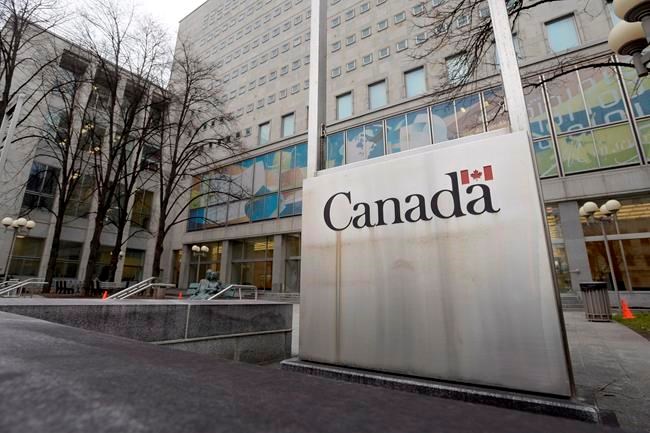OTTAWA — Researchers say recent service cuts at Canada's national archives are making their work — already hampered by COVID-19 — even more challenging.
In a letter to Library and Archives Canada, the Canadian Historical Association urges the institution to reconsider reductions that have left its archival reading room open just three days a week.
Historians say the move means researchers from across the country, including students trying to complete degrees, must scramble for coveted appointments to view paper file holdings in the Ottawa reading room.
The historical association's letter allows that Library and Archives has doubtlessly struggled, like other organizations, to maintain employment and services during the COVID-19 pandemic.
However, the association says members are "gravely concerned" about the federal institution's limits on public access, which threaten the agency's core mission.
In response to questions from The Canadian Press, Library and Archives says it is facing difficulties meeting client demands, meaning it has had to prioritize some services and reduce others.
Justine Lesage, a spokeswoman for Canadian Heritage Minister Steven Guilbeault, referred inquiries Friday to department staff, saying the minister's office was in "waiting mode" in advance of a new cabinet being appointed Tuesday.
The Wednesday letter from the historical association is signed by president Steven High, a Concordia University professor, and past president Penny Bryden of the University of Victoria.
"At a time when other institutions and businesses are slowly expanding their availability to the public, it seems that LAC has taken the reverse approach," says the letter, also posted on the association's website.
"How is it possible to continue to make the case for the value of … heritage and history when the key driver of their value — the public — is being kept out?"
The previous system of registering for limited numbers of archival reading room spots, two weeks in advance, was difficult enough, the letter says.
"Spaces for the week were snapped up by researchers within minutes of the portal opening, making research virtually impossible for people outside the Ottawa area."
Nevertheless, the possibility of signing up for a maximum of 12 hours of research time a week was better than the complete lockdown of public access that had characterized much of the pandemic, the letter adds.
"Researchers are desperate to get back to the Archives. The complete closure of the reading room in the summer of 2021, and the retrenchment rather than expansion of its services since then, however, is going too far."
Library and Archives Canada acknowledged that the hours of service at some of its on-site locations have been temporarily reduced and that response times are longer than usual for most of its remote services.
"Although these service standards are temporary and should not necessarily be viewed as the new normal, they provide a realistic approximation of our current level of service," the organization said.
Library and Archives added it is "reviewing the allocation" of its resources. "However, addressing current backlogs and responding to service requests is currently our utmost priority."
University of Toronto historian Robert Bothwell said delving into the past is a time-consuming slog through reams of archival papers, a task that is now even more drawn-out.
"Academic budgets are just not made for this," he said. "I mean, we do subsidize our grad students, we do give them some financial help, but a lot of it they have to budget for themselves. So for these guys, it's just hopeless."
Fellow University of Toronto history professor Timothy Sayle said a lack of funds limits the assistance — or at least the timeliness of help — that Library and Archives can provide researchers who are not in Ottawa, or those considering whether a trip to the Archives is worthwhile.
Sayle noted the main gateway to the organization for these researchers is the "Ask Us a Question" feature on the institution's website, a tool he uses.
"When the responses to my queries do come from LAC, they are excellent. But they do take months to arrive," Sayle said. "LAC staff clearly take these very seriously and work hard to answer them — but my sense is there are very, very few people who can provide the answers to the questions that get asked."
He tells master's students about the tool, but warns they are "unlikely to hear back in time for the results to be useful for the research they are doing as part of their degree."
The federal information watchdog is conducting a systemic investigation of the “ongoing failure” of the national archives to provide timely responses to requests from the public for historical spy files.
Information commissioner Caroline Maynard said earlier this year a chronic concern underlying the probe was Library and Archives' difficulty in vetting decades-old, but still highly classified, intelligence files for release.
This report by The Canadian Press was first published Oct. 22, 2021.
Jim Bronskill, The Canadian Press




